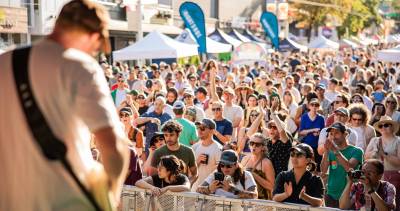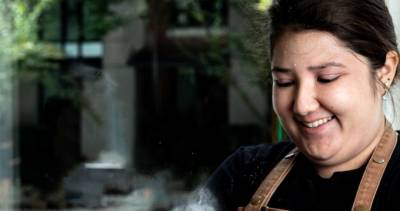La Boheme breaks Vancouver hearts again
At the Queen Elizabeth Theatre on Saturday, April 26. Continues until May 8
I admit it: I cried. And I didn’t even heed my own advice to bring tissues, so I was forced to wipe my nose on the sleeve of my best opera-going cardigan. (I wonder if I should invoice Vancouver Opera for the cost of the dry cleaning?)
No matter how prepared you are for it, there’s something about Giacomo Puccini’s La Bohí¨me that makes the tears start rolling at the instant Mimi kicks the bucket. And judging by the muffled sobs and blubbery sniffles echoing through the Queen Elizabeth Theatre, Vancouver Opera nearly scored a perfect 10 on the weepometer last Saturday night. That’s thanks in large part to the direction of Henry Akina, general and artistic director of Hawaii Opera Theatre, from where this production comes. Although Puccini’s lush, emotional score makes it easy to feel for his protagonists, Akina brought them to life by maximizing the realism of the libretto.
Take, for example, his treatment of the seamstress Mimi, played by the engaging soprano Frédérique Vézina. In Act 1, when she appears at the poet Rodolfo’s door asking for help to light a candle that has gone out, Akina invents a back story for the incident. He has Mimi lurk outside the studio apartment that Rodolfo, capably played by Roger Honeywell, shares with his painter friend Marcello, sung by charismatic baritone Aaron St. Clair-Nicholson. She waits until the object of her affections is alone, then blows out her candle and knocks on the door. Later, when she moves to leave, it’s no accident when she loses the key to her home. This sweet girl isn’t as innocent as she looks.
Rodolfo, meanwhile, comes across as a little shy and awkward, brushing Mimi’s hand then bashfully introducing himself from across the room in the aria "Che gelida manina". Little touches like these give the romance added credibility, as does the insightful plot, which has Rodolfo’s jealousy—real or feigned—tear the lovers apart in Act 2. So when Mimi returns, consumptive and dying, to Rodolfo’s apartment in Act 3, after a short-lived romance with a viscount, the richness and depth of their relationship makes her passing that much more bittersweet.
These characters—and their friends, who include the violinist Schaunard (baritone Alexander Dobson), philosopher Colline (bass-baritone Daniel Okulitch, who shines with his "Vecchia zimarra" aria), and Marcello’s on-off-on-again love Musetta (soprano Monica Huisman, who almost steals the show)—have embraced life with such force, and that’s what breaks your heart every time.















Comments